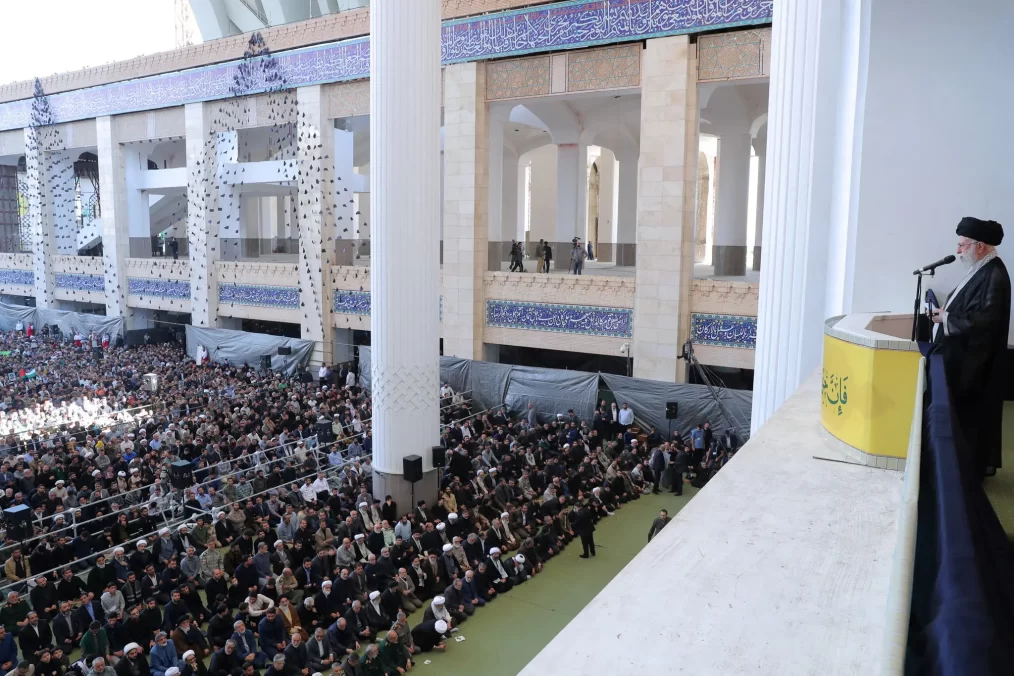
Khamenei Defends Missile Strikes in Rare Sermon, Praises Hamas Attack on Israel
New York Times
On October 4, Iran’s Supreme Leader Ayatollah Ali Khamenei delivered a rare and highly charged Friday sermon, defending recent missile strikes on Israel and hailing the October 7, 2023, Hamas-led assault on southern Israel. In his address, Khamenei declared that Israel’s existence “won’t last long,” while labelling the actions of Iran-backed militant groups as both “logical and legal.”
The sermon, delivered at Tehran’s Imam Khomeini Grand Mosalla mosque, marked Khamenei’s first Friday sermon in nearly five years. Addressing tens of thousands, the Supreme Leader spoke in Arabic, focusing on the endurance of the so-called “axis of resistance” against Israel. Standing with a rifle in hand—a powerful symbol of defiance—he emphasized Iran’s unwavering stance. The crowd frequently erupted in chants of “death to America,” a recurring slogan in such gatherings.
Khamenei celebrated the October 7 attack on Israel as a rightful and proportionate response. He called the invasion and subsequent missile strikes “logical and legal” under both international and Islamic law. The assault, which escalated the ongoing Gaza conflict, was described by Khamenei as the “minimum punishment” for what he viewed as Israeli aggression.
The Supreme Leader’s speech also resonated beyond Iran, with direct calls to countries across the region, from Afghanistan to Yemen, to take action against Israel. Khamenei specifically praised Hezbollah, Hamas, and other allied groups for their “fierce defence” of Palestinian territory, mentioning the commemoration of slain Hezbollah leader Hassan Nasrallah.
Khamenei’s rhetoric centred on the idea that Israel would never defeat Iran-backed groups, regardless of recent setbacks. His words were designed to boost morale among both domestic supporters and regional allies. However, this defiant tone has deepened concerns of a broader, more destructive regional war that could involve multiple countries beyond Israel and the Palestinian territories.



